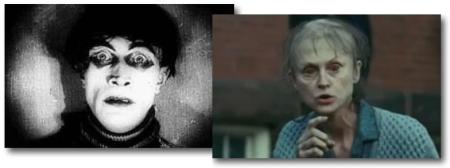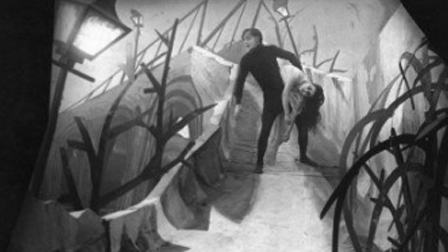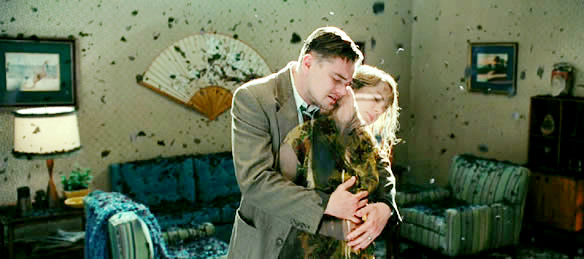Hit Me With Your Best Shot: "THE CIRCUS"
 Wednesday, April 20, 2011 at 10:36PM
Wednesday, April 20, 2011 at 10:36PM In the weekly "Hit Me With Your Best Shot" series, we select what we view as the best shot from a pre-selected movie. Everyone who does the same gets linked up! This week's film is Charlie Chaplin's somewhat underappreciated slapstick comedy The Circus (1928).

Don't you love it when a movie character is so iconic that you only have to see their backside as intro? The movie's plot kicks into gear when a pickpocket puts his catch into the Tramp's pocket to prove his innocent. Comedic complications ensue.
In truth, I have never quite understand the Little Tramp's appeal being mostly a Buster Keaton man. With Water For Elephants coming out on Friday, I thought a circus movie was in order and why not give Chaplin a second chance... or a fifth. In the past I've found his films a touch too saccharine -- it's a personal taste thing -- but it turned out that The Circus was just what I needed since it went light on the "awwwww" and sniffly pity and leaned into its gags with something in the general vicinity of wicked glee. I was super drepressed and ended up laughing for two hours. Win!

The best illustration of the naughty comic touch might be the late in the film when the Tramp, who usually squirms from delight, reveals that his squirming while watching a tight rope walker (his rival for the love object's affection) is actually something like physical exertion to telekinetically will the walker into falling and I laughed heartily at an early variation on that old saying "stealing candy from a baby" as he devours an entire pastry from the hands of an infant.
But in the end I kept going back to this very simple shot near the beginning which is much much funnier in context.

It's part of the perfectly judged opening slapstick theft with hilarious confusions and plot consequences. Both the Tramp and the thief have been running from the cops and from each other and they suddenly enter the frame looking like partners in crime; Chaplin's hat tip at the tail end of the run is a super funny nod to this odd turn of events (they'll be enemies again in a second).
It got me to thinking about why slapstick is mostly dead in the movies. We don't have any Tatis or Chaplins or anyone left anymore and it's not because it's 2011 or because comedy is dead or because [cue nostalgic violins] "they don't make it like they use to" or because the movies found sound. It's because the currently preferred style of rapid cutting and the absolute manic attachment to closeups --even in scenes without heavy emotional components -- prevents the longform comedy of careful set-up and physical punchline; it's tough to maximize the humor of a pratfall or a surprise twist in the action when you can't see the entirety of a comedian's body in motion. The modern musical has the same problem in finding its voice, if you will. If you can't see the choreography it's awfully tough to join in the dancing.
 Other Tramps
Other Tramps
- Movies Kick Ass "You're supposed to be funny" Chaplin's resistance to sound.
- Awww, the Movies! ♥ Strike a pose, Charlie.
- Serious Film "The Keaton Man's Guide To Loving Chaplin"
- Ahora the sorrow of circuses and Chaplin's hall of mirrors
The complete index of "Hit Me" episodes
UPDATE. We were supposed to do Sofia Coppola's Somewhere next. But we keep running into snags with this series. I know the majority of you rent from Netflix (as do I) and for some reason though the movie is out on DVD and Blu-Ray it is strangely not available on Netflix for another month. Perhaps this is some new contract problem between studios and Netflix? SIGH.
So next Wednesday no episode. But stay tuned for more news on this series.







